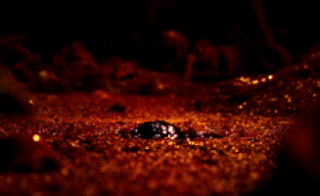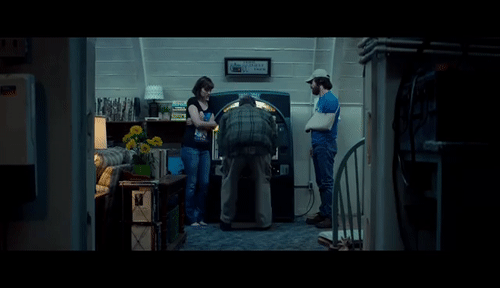Unexpected Cures of Lockdown Boredom
- ethanbeaven97
- Mar 31, 2021
- 5 min read

(Mary Elizabeth Winstead in '10 Cloverfield Lane')
After a hard year of loss, struggle, and isolation, we are hopefully coming to the end of this shit show. And, in what might be the last leg of lockdown, the exhilarating escapism and vital distraction of cinema and TV can be crucial in helping us get over the line with at least some sanity left. I’m not sure about you, but immersing myself in a different world has been a great relief this past year. Recently though, I’ve been drawn to the exact films and TV shows that, logically, I should be avoiding. These choices have strangely involved ones where isolation is the prevalent theme, setting, or feeling, and they are permeated with characters that feel trapped. In fact, these films and programmes have been surprisingly therapeutic for me. Not because I’ve become so accustomed to isolation I subconsciously seek it out in other ways (I hope not anyway...), but for the reason that they have made me feel alive again. It is no surprise then that most of these are horrors and thrillers that get the blood pumping and the bum squeaking, and that frequently do this by intelligently playing on our fears of claustrophobia and powerlessness. However, science fiction is also strongly represented here, with stories littered with sci-fi tropes such as time-travel, dystopian realities, and terrible technology. Perhaps it is the sense of expansive imagination and escape typical of great science fiction, coupled with the visceral thrills of horror, that draws me to them at the minute. Nevertheless, they have definitely enriched my time in isolation. So, without further ado, here are my unexpected cures of lockdown boredom.
The Descent (2005):

(Shana Macdonald in 'The Descent')
Synopsis:
A group of adventurous friends set off on a cave exploring expedition. However, as they descend further into this dark, subterranean world, they find themselves trapped and without any help from the outside world. But, this is only a meagre part of their terrifying nightmare, as they soon find out that they are not alone down there...
The Descent is a British horror film from the mid-noughties directed by Neil Marshall, and featuring an all female-cast. Considering that historically female characters in horrors are usually trapped within the stereotypes of overtly sexual or maternal, Marshall created a horror with authentic women that exhibited far more power and agency than previous iterations in the genre. It is quite a unique film for this reason alone, but there is also so much more that is brilliant about this intelligently orchestrated horror. There are a handful of horrors that have got under my skin like this, I was even trembling with adrenaline for at least an hour or so afterwards. If you’re a fan of horror and haven’t seen it, I couldn't recommend this more. But be weary, it is not for the faint hearted.
10 Cloverfield Lane (2016):

(Winstead, John Goodman, and John Gallagher Jnr in '10 Cloverfield Lane')
Synopsis:
After a car crash, Michelle (Mary Elizabeth Winstead) wakes up injured and handcuffed in an underground bunker. The two men with her (played by John Goodman and John Gallagher Jr) inform her that some sort of apocalyptic event has occurred on the surface, making the earth uninhabitable. Navigating this strange, terrifying reality, Michelle must learn to live in long-term isolation or find a way to escape to the mysterious outside world.
This psychological thriller is a spiritual sequel to Cloverfield (2008), an experimental monster movie that blended a ‘found footage’, cinema verite style with the conventions of the disaster flick. Like it’s predecessor, 10 Cloverfield Lane sticks to its experimental roots by largely taking place within one location, a decision extremely rare for a mainstream film. Here, less is certainly more, as the strong sense of claustrophobia and helplessness created by this approach is the bedrock of the film’s persistent, nail-biting tension. Just as Cloverfield was influenced by the horror genre (Cannibal Holocaust, The Blair Witch Project), there are definite echoes of the slasher film in this , particularly the trope of the final girl. However, as much as it is a spiritual continuation of Cloverfield, it is very much its own film that would work just as well if its predecessor didn’t exist.
There is so much to admire about this film, from its taut and cleverly orchestrated suspense, to its inventive minimalism and unerring performances from a very small cast. John Goodman in particular delivers a brilliantly creepy, unsettling performance that is imbued with the right amount of ambiguity. Persistently made to feel unsure of his intentions, this keeps us firmly within the thrilling realm of the unknown. Just like the rest of the film, first time director (Dan Trachtenberg) feeds us exactly the right amount of information at exactly the right time, an incredibly hard feat but one that is essential to a fantastic thriller.
Ex Machina (2014):

(Oscar Isaac and Gana Bayarsaikhan in 'Ex Machina')
Synopsis:
A young programmer Caleb (Domhnall Gleeson) is selected by billionaire tech giant Nathan (Oscar Isaac) to take part in an experiment with AI technology (Alicia Vikander) at his secluded residence. The lines blur between human and android, friend and foe, as we explore what it means to be human.
Written and directed by visionary artist Alex Garland (The Beach, 28 Days Later, Annihilation), Ex Machina is a sci-fi psychological thriller that, like 10 Cloverfield Lane, is set largely in one location and successfully demonstrates the mantra of “less is more”. Like other classics of the genre such as 2001: A Space Odyssey (1968) or Blade Runner (1982), Ex Machina explores whether artificial intelligence can achieve sentience, and the subsequent philosophical and moral implications of such an exploration. The film won a variety of awards and was nominated for Best Screenplay at the Oscars, and it’s not hard to see why. Despite the heavy philosophical questions and murky waters that the film treads in, it’s interesting, funny, and always engaging. Moreover, there is a profound relevance to these issues against the backdrop of rapid, seemingly limitless technological advancement, and this relevance will only grow as we head further into the 21st century. Ex Machina is sure to become a sci-fi classic.
Life On Mars (2006-07):

(John Simm in 'Life on Mars')
Synopsis:
After being run over in 2006, Manchester detective Sam Tyler (John Simm) wakes up in 1973. Working in the same offices in the same role, Sam solves crimes of the day whilst he figures out how to get back home.
Having watched this as a 10 year old when it originally aired, I was deeply curious to revisit it when I saw it advertised on Netflix. Maybe the humdrum malaise of lockdown had me longingly looking back to simpler times in a show that not only was nostalgic for me, but is drenched in nostalgia for the 1970s. Moreover, Sam is trapped in an absurd reality that he desperately wants to escape from, a feeling that all of us can probably relate to after the past year. Revisiting TV, music, or films that you used to love can be risky business, but my appreciation and love for Life on Mars was actually enhanced after this viewing. This time I brought a cultivated love of Kafka, Bowie and the 70s, and police procedurals to it, and now I understand better why it was such a big hit. At its core, it’s a conventional police procedural that pays homage to 70s cop shows like The Sweeney. But it’s also a high-concept surreal sci-fi. On the surface, these two things should be at odds with each other, creating a show that is tonally all over the place. But the beauty of Life on Mars is that it works, that these elements actually balance and complement rather than contradict and undermine. The result is a brave, incredibly unique take on the police procedural that boldly stood out at the time and is still a joy today.
Comments